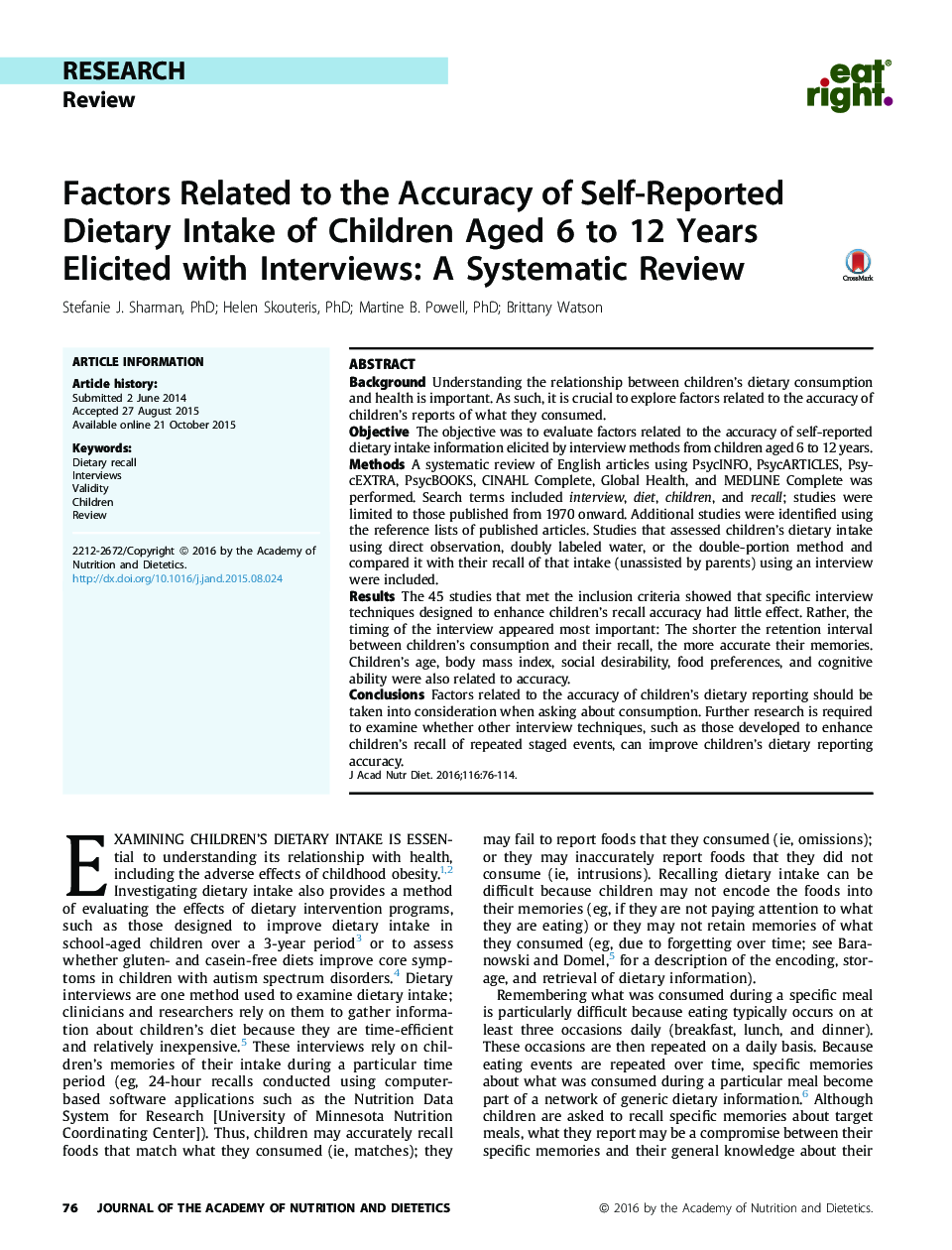| Article ID | Journal | Published Year | Pages | File Type |
|---|---|---|---|---|
| 2656478 | Journal of the Academy of Nutrition and Dietetics | 2016 | 39 Pages |
BackgroundUnderstanding the relationship between children’s dietary consumption and health is important. As such, it is crucial to explore factors related to the accuracy of children’s reports of what they consumed.ObjectiveThe objective was to evaluate factors related to the accuracy of self-reported dietary intake information elicited by interview methods from children aged 6 to 12 years.MethodsA systematic review of English articles using PsycINFO, PsycARTICLES, PsycEXTRA, PsycBOOKS, CINAHL Complete, Global Health, and MEDLINE Complete was performed. Search terms included interview, diet, children, and recall; studies were limited to those published from 1970 onward. Additional studies were identified using the reference lists of published articles. Studies that assessed children’s dietary intake using direct observation, doubly labeled water, or the double-portion method and compared it with their recall of that intake (unassisted by parents) using an interview were included.ResultsThe 45 studies that met the inclusion criteria showed that specific interview techniques designed to enhance children’s recall accuracy had little effect. Rather, the timing of the interview appeared most important: The shorter the retention interval between children’s consumption and their recall, the more accurate their memories. Children’s age, body mass index, social desirability, food preferences, and cognitive ability were also related to accuracy.ConclusionsFactors related to the accuracy of children’s dietary reporting should be taken into consideration when asking about consumption. Further research is required to examine whether other interview techniques, such as those developed to enhance children’s recall of repeated staged events, can improve children’s dietary reporting accuracy.
